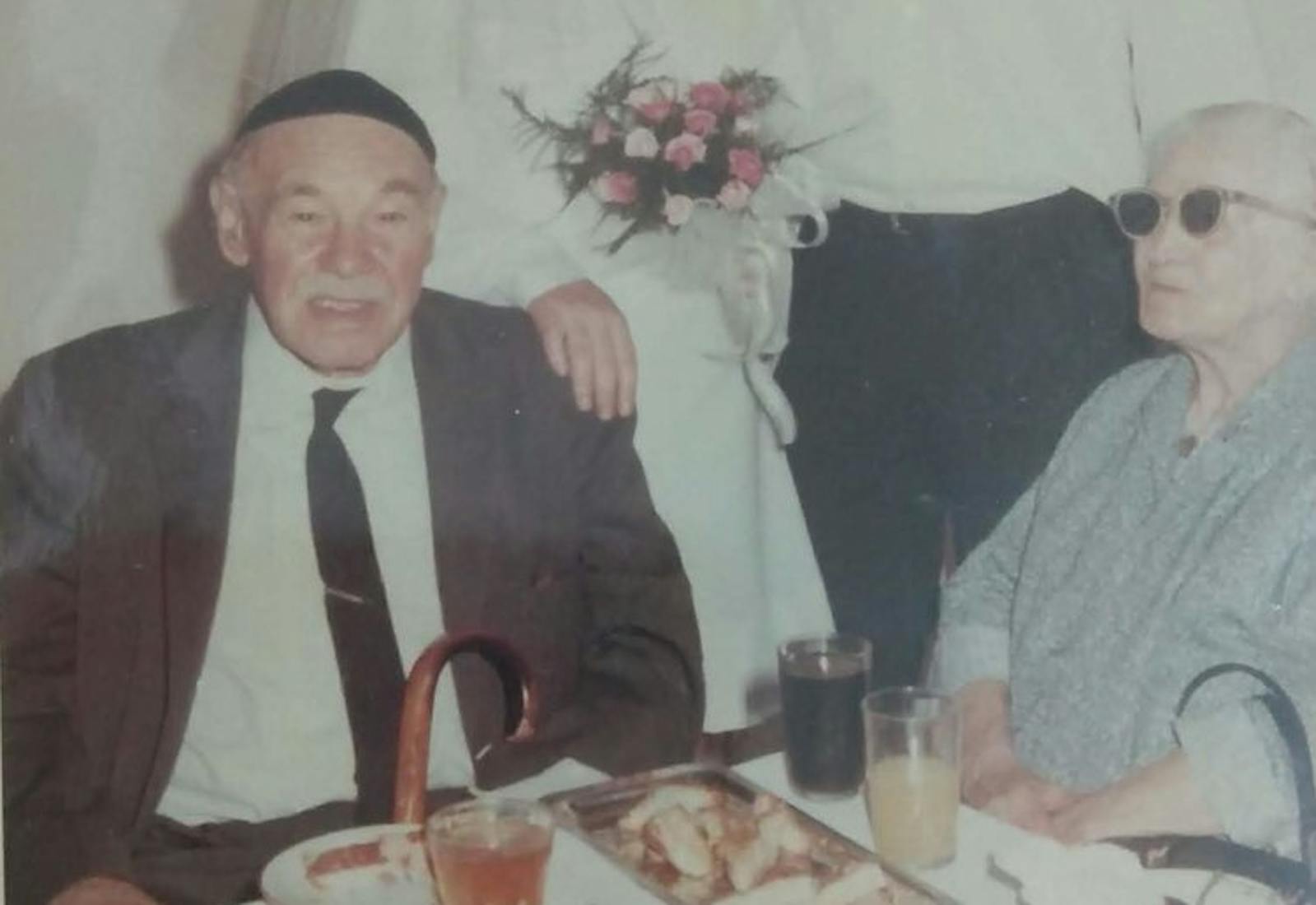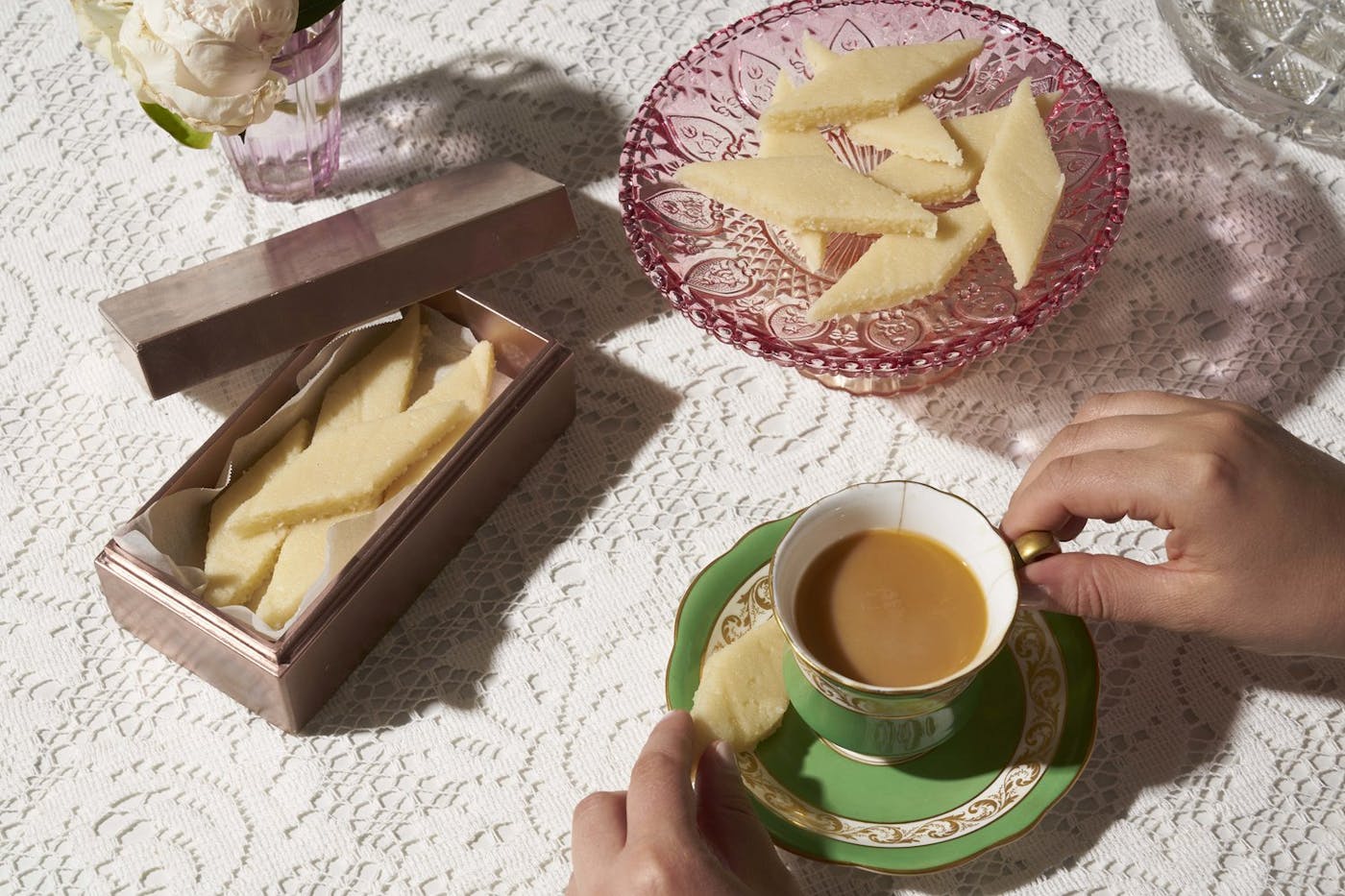Shared by Karni Einat

Karni Einat remembers her grandmother Leah’s table in Jerusalem clearly from when she was little. During each holiday, a different family recipe graced the table. The morning after Passover seder, it was kubebas, fried meat patties bound with matzo meal; for Shavuot, it was a challah braided to look like Jacob’s ladder. And, for Yom Kippur, the family broke the fast with pipitada, a sweet drink made with melon seeds that her grandfather Ya’akov, a tinsmith in the old city of Jerusalem, collected during the summer.
Of all of Leah’s recipes and culinary traditions, her marzipan — pronounced masapan in the family, which uses the Ladino name for the dish — stands out. Made with mastic, a tree resin, the recipe has a note of pine, and a flavor unlike most marzipan. Leah, who had impaired vision, made the recipe with the help of Ya’akov for special occasions including birthdays or the birth of a new family member. Using cookie cutters, she carved the marzipan into various shapes and then placed the pieces into small boxes, one for each family member. Karni recalls she would eat it as slowly as possible, making the treat last as long as she could.
Karni isn’t sure where the recipe originally came from. Her family has been in Israel for 13 generations. But, with roots in Spain, which has a longstanding marzipan tradition, it’s possible that the recipe worked its way down many generations.
Karni learned the recipe when she was an adult. She asked Leah to share the recipe with her along with two other recipes she loved, the Passover kubebas and her grandmother’s cookies. “I didn’t want [the marzipan] to vanish when she was gone,” she explains. When we asked Karni if her grandmother shared the recipe over the phone, she explained that her grandparents didn’t have a telephone in their home. She was of a generation that cooked with a kerosene stove and clay pots. Instead, she dictated the recipe to Karni as the two sat together, with the help of Ya’akov.
The recipe has remained relatively unchanged since Karni inherited it and brought it with her to her home outside of Tel Aviv in a town called Kefar Saba. The ingredients remain the same, but the technique has been updated with the advent of a food processor, which makes grinding the almonds easier than Leah’s method of using a meat grinder, and a mixer which has replaced Ya’akov’s wooden spoon that was used to knead the dough.
Today, Karni is the only person in the family to make the recipe, though it’s enjoyed by everyone. She makes it for her husband David’s birthday, following her grandmother’s tradition of sharing it with the family in small boxes — with a large box for David.
